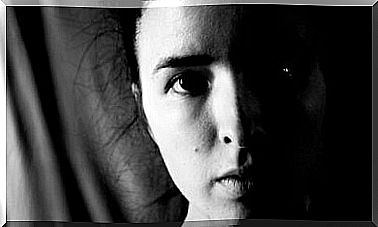Forgiveness: Travel To The Past And Return Without Pain

When someone hurts us, the first reaction is to not want to forgive them. Feeling offended, disappointed or, in some cases, deeply saddened is a normal reaction, but one that hides more than one danger.
It is true that in the short term resentment allows us to react, which is why we instinctively do not want to forgive. But if we hold a grudge for a long time, we find ourselves trapped with the mind in a situation that belongs to the past. This will lead us to experience strong emotions of all kinds, causing unnecessary suffering in us.
Two of the most deleterious states in which the mind can rest and which occur when we do not know how to forgive at the right time, are hatred and anger. Seneca describes them as the most horrifying and irrepressible emotions one can experience. On many occasions, the damage they cause is greater than the possible benefits.
Forgiving those who have made us suffer, however, is not easy; it is not enough to want it. Once we understand the negative effects of hatred and decide we want to forgive the person who hurt us, the question arises: how can we really do it?

If we find a person hurt by an arrow, we don’t waste time wondering what material it is made of or looking for who shot it. The first thought is to rescue the person and extract the arrow as soon as possible. The same is true for suffering: it must be removed as soon as possible, without allowing it to continue to harm us. We invite you to reflect on some of the more valid reasons to begin to forgive.
Forgiveness is a sign of strength
In the Western mentality , patience and tolerance are considered important values, but up to a certain point. If someone offends us, in fact, responding with patience and tolerance seems to us a sign of weakness and passivity. This is one of the main reasons why we struggle to forgive others.
These two virtues are the essential ingredient of emotions such as forgiveness and love, therefore they should not be interpreted as a sign of weakness. On the contrary, we should begin to see them as a sign of strength, which comes from the profound ability to keep ourselves stable in our values.
Responding to a painful situation with patience and tolerance is a symptom of emotional strength and helps us move closer to forgiveness. Dealing with a difficult moment with this attitude implies a good control of our feelings, it means enjoying good self-esteem and emotional intelligence.

Forgiveness is the water that extinguishes the fires of the soul
The U theory teaches us that we cannot look to the future with the weight of the past on our shoulders. Letting go of the events of the past with serenity, forgiving the mistakes of others and ours, leaves room for new opportunities.
As Otto Scharmer, creator of the U theory assures, “Energy follows attention. For this reason, we must not focus on what we are trying to avoid, but on what we want to happen. For example, a person resentful of past disappointments will unconsciously seek the same result in all his actions and relationships, because he is anchored in the circuit of past events and not in what can happen again ”.
The U theory also says that if we don’t get rid of old fears and prejudices (Scharmer uses the English expression let it go ) we won’t leave enough space for something really new to happen ( let it come ) in our life. If we don’t put down the ballast of the past, we won’t leave room for life to surprise us with new experiences.
As we have seen, forgiving those who have made us suffer can be very difficult. But for this very reason it is essential to understand the value of learning to forgive. Remember that it is up to you to let go of the past and get rid of the heavy emotional burden that does not allow you to move forward.









